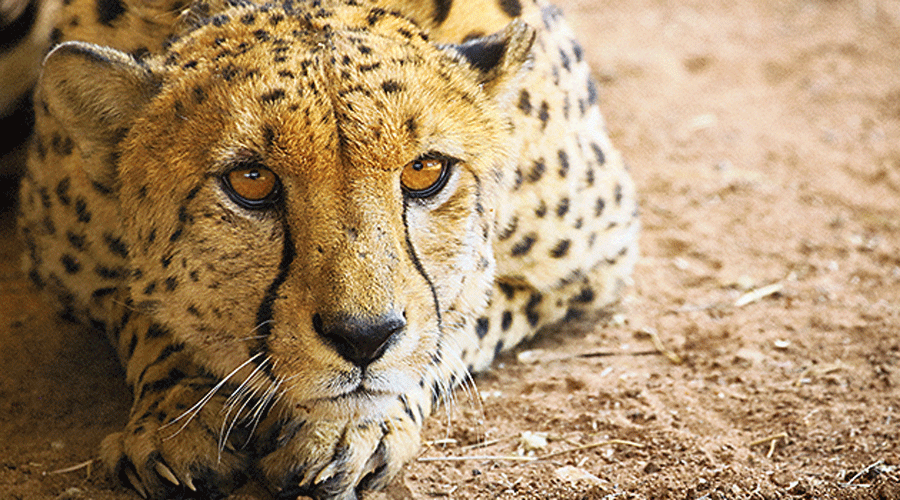Five female and three male cheetahs are set to arrive from Namibia at the Kuno National Park in Madhya Pradesh early Saturday where wildlife scientists hope they will serve as “founders” of a new cheetah population in India.
The eight cheetahs will fly aboard a special Boeing 747 Jumbo Jet aircraft from Windhoek, Namibia, into Jaipur, Rajasthan, and then ride a helicopter into Kuno where Prime Minister Narendra Modi is expected to oversee their release into the wildlife sanctuary. The release date coincides with Modi’s birthday.
Their release will mark a key step in the Union environment ministry’s plan to reintroduce into India the only large carnivore to have gone extinct since Indian Independence. Wildlife experts say habitat loss, depleting prey, and sport hunting contributed to its loss. India declared the cheetah locally extinct in 1952 after the last one was shot by a maharaja in 1947.
“This is a step towards correcting an ecological wrong,” Sanjay Shukla, the member secretary of the Central Zoo Authority, an arm of the environment ministry, said on Thursday. The reintroduction of cheetahs, he said, will help restore lost ecological balance in India’s grassland landscapes.
The proposal to reintroduce the cheetah in India emerged in 2009 from sections of conservation scientists and the Cheetah Conservation Fund (CCF), an international non-profit based in Namibia, involved in research and conservation.
The cheetahs, set to fly out of Windhoek on Friday, were on Thursday under isolation at the CCF Centre in Otjiwarongo, Namibia, where CCF founder and executive director Laurie Marker and other cheetah specialists have been preparing them for relocation. Each has been vaccinated and fitted with a satellite collar for tracking after release.
This is the first time a large carnivore is set to be reintroduced from one continent to another. Wildlife experts have selected the eight cheetahs based on their health, wild disposition, hunting skills and ability to contribute genetics that will result in a strong founding population, the CCF said.
“Bringing back a top predator is expected to restore historic evolutionary balance with cascading effects,” said Yadvendradev Jhala, dean of the Wildlife Institute of India, Dehradun and principal scientist guiding the cheetah reintroduction project.
The 748-sqkm Kuno park is devoid of human settlements, has adequate prey, and forms part of an open forest landscape that has the capacity to sustain cheetahs. Kuno is the only wildlife site in the country from where all villages had been relocated, the environment ministry has said.
Cheetahs currently occupy less than nine per cent of their historic geographical range and the CCF estimates that fewer than 7,500 individuals remain in the wild. “Conservation of species requires global cooperation,” Marker said. “As a conservationist, I am thrilled,” she said ahead of the journey.
The abundance and diversity of prey in Kuno make it a suitable site for reintroduction. Prey include chital, four-horned antelope, chinkara, wild boar, nilgai, rhesus macaques and grey langur, said Vidya Venkatesh, director of the Last Wilderness Foundation, a conservation group working with the Madhya Pradesh state authorities and local communities to facilitate the reintroduction.
“The support of local communities is critical for the success of such a project,” said Venkatesh. “We’re trying to address the challenges the local communities face, help with education and livelihoods to reduce their dependence on forests through alternative solutions — this is important for conservation.”
But sections of wildlife experts have long been concerned Kuno was originally intended for lions from Gujarat and not cheetahs from Africa. They have been worried that all the Asiatic lions are at a single site — the Gir forest in Gujarat.
The experts say the presence of all Asiatic lions at a single site makes them vulnerable to infections. In 2018, medical authorities confirmed that at least 21 lions had died from a virus that had wiped out a third of Africa’s lions in Tanzania’s Serengeti National Park in 1994.











